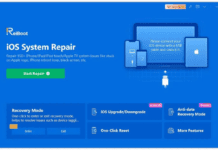In the dynamic world of accounting, precision is non-negotiable. A minor error in financial statements can snowball into compliance issues, misinformed decisions, or even legal consequences. Traditional accounting methods, although effective, are increasingly being complemented or even replaced by advanced technologies designed to minimize human error. Among these, AI-powered error detection stands out as a game-changer, offering unmatched accuracy, efficiency, and insight for accounting professionals.
The Evolution of Accounting Accuracy
Historically, accounting accuracy relied heavily on human diligence. Accountants would manually reconcile ledgers, cross-check transactions, and painstakingly verify financial statements. While effective, this method is prone to errors, particularly in high-volume or complex organizations. The introduction of software solutions automated many processes, yet human oversight remained essential, leaving room for mistakes.
Today, the emergence of AI in accounting and finance is transforming this landscape. By leveraging machine learning algorithms, pattern recognition, and predictive analytics, accounting systems can now detect discrepancies, anomalies, and potential errors in real time. This evolution marks a significant shift from reactive error correction to proactive error prevention.
Understanding AI-Powered Error Detection
AI-powered error detection is the application of artificial intelligence technologies to identify inconsistencies and errors in accounting data. Unlike traditional methods, which often rely on manual cross-checking, AI can analyze vast amounts of financial data quickly, identifying subtle anomalies that might escape human scrutiny.
Some key features of AI-powered error detection include:
- Anomaly Detection: Machine learning algorithms recognize patterns in historical data and flag deviations from expected trends.
- Predictive Analytics: AI predicts potential accounting errors before they occur, allowing proactive measures.
- Automated Reconciliation: AI can reconcile accounts across multiple systems, ensuring consistency and accuracy.
- Continuous Learning: AI systems improve over time, learning from previous errors to enhance future accuracy.
By automating these critical functions, businesses can achieve greater accuracy while freeing accountants to focus on strategic decision-making.
Benefits of AI-Powered Error Detection in Accounting
The adoption of AI in accounting processes brings a host of tangible benefits. Below are some of the most impactful:
1. Improved Accuracy
Accuracy is the backbone of accounting. AI in accounting and finance enhances precision by analyzing transactions at a granular level and detecting irregularities that humans may overlook. From duplicate entries to incorrect ledger postings, AI minimizes the risk of errors, ensuring reliable financial reporting.
2. Increased Efficiency
Manual error detection is time-consuming. With AI, tasks that would take hours can be completed in minutes. Automated processes, such as data reconciliation and anomaly detection, allow accountants to focus on strategic tasks rather than repetitive checks, drastically improving operational efficiency.
3. Cost Savings
Errors in accounting can be costly not just in terms of fines or compliance penalties, but also through lost opportunities and inefficient processes. By reducing errors, AI-powered systems help businesses save substantial amounts in both direct and indirect costs.
4. Enhanced Compliance
Regulatory compliance is critical in finance. AI helps ensure that all financial transactions adhere to relevant regulations, reducing the risk of audits, fines, or legal disputes. Continuous monitoring and real-time error detection provide a proactive approach to compliance management.
5. Data-Driven Insights
AI doesn’t just detect errors; it provides actionable insights. By analyzing patterns and trends, AI can help accountants identify systemic issues, optimize processes, and make more informed business decisions.
Practical Applications of AI-Powered Error Detection
The capabilities of AI in accounting and finance extend across various practical applications:
Fraud Detection
AI systems can identify unusual transaction patterns that may indicate fraudulent activity. By continuously monitoring financial transactions, AI helps organizations prevent fraud before it escalates.
Expense Management
AI-powered tools can automatically flag irregular expenses, duplicate claims, or out-of-policy spending. This not only ensures accurate expense reporting but also strengthens internal controls.
Invoice Processing
In large organizations, managing invoices manually can lead to errors such as incorrect amounts or missing data. AI automates invoice processing, verifying accuracy against purchase orders and contractual terms.
Audit Readiness
Preparing for audits is often a labor-intensive process. AI streamlines audit preparation by ensuring all records are accurate, complete, and organized, making external audits more efficient and less stressful.
Financial Forecasting
AI can detect inconsistencies in financial data that may affect forecasts. By correcting errors in real-time, businesses can rely on more accurate predictive models, improving strategic planning and budgeting.
Implementing AI in Accounting Practices
Transitioning to AI in accounting and finance involves more than just installing software. A successful implementation requires strategic planning and process alignment. Here are key steps to ensure success:
1. Assess Organizational Needs
Identify areas where errors are most frequent or costly. This could include accounts payable, expense management, or financial reporting.
2. Select the Right AI Tools
Choose AI solutions that align with organizational needs and integrate seamlessly with existing systems. Cloud-based solutions often offer scalability and real-time data processing.
3. Train Your Team
Even the most advanced AI systems require human oversight. Training accountants to interpret AI-generated insights and alerts ensures optimal results.
4. Start Small, Scale Gradually
Implement AI in one process or department initially. Once the benefits are evident, scale adoption across the organization.
5. Monitor and Optimize
AI systems continuously learn and improve. Regular monitoring ensures they adapt to new patterns, regulatory changes, and organizational requirements.
Challenges in AI Adoption
Despite its numerous benefits, adopting AI in accounting and finance is not without challenges:
- Data Quality: AI relies on accurate and clean data. Poor data quality can undermine error detection.
- Integration Issues: Existing accounting systems may not seamlessly integrate with AI tools.
- Change Management: Resistance from staff accustomed to traditional methods can slow adoption.
- Cost: Initial investment in AI solutions can be significant, though ROI is often realized quickly through efficiency gains.
Addressing these challenges requires careful planning, executive support, and ongoing staff training.
The Future of Accounting with AI
The trajectory of AI in accounting and finance indicates a future where human accountants focus more on analysis, strategy, and advisory services, while AI handles repetitive and error-prone tasks. As AI continues to evolve, the following trends are likely:
- Hyperautomation: Complete automation of end-to-end accounting workflows.
- Predictive Analytics Expansion: AI will increasingly predict not only errors but also financial trends, market shifts, and cash flow issues.
- Blockchain Integration: AI combined with blockchain technology could offer near-perfect transactional accuracy.
- AI-Augmented Decision Making: Human accountants will collaborate with AI to make data-driven strategic decisions.
In essence, AI will not replace accountants but empower them to deliver greater value.
Conclusion
Accuracy in accounting is critical, and the stakes have never been higher. AI-powered error detection is transforming how organizations approach financial accuracy, efficiency, and compliance. By leveraging ai in accounting and finance, businesses can detect errors in real time, reduce costs, improve regulatory adherence, and gain actionable insights.
For accounting professionals, embracing AI is no longer optional; it’s essential for staying competitive in a fast-paced, data-driven financial environment.
To keep ahead in the field of finance AI Accountant provides smart automation for accounting and bookkeeping. Their services cover transaction tagging, bank reconciliations, report creation, and smooth integration with platforms like Tally and Zoho Books. By handling routine accounting tasks, they allow businesses to concentrate on compliance, insights, and strategic growth.










